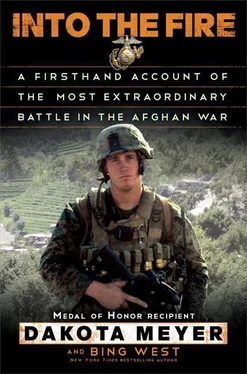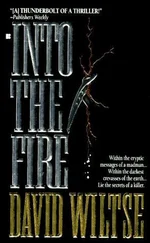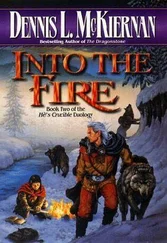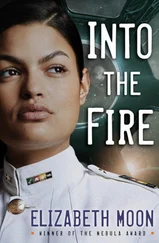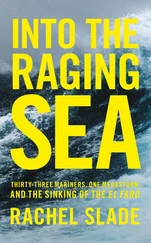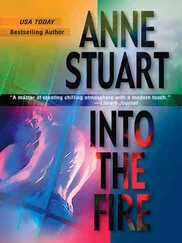“Pale Horse,” Swenson replied, “am under heavy fire from the village and the hills to the east and on both sides. Request immediate suppression while we pull back.”
The Kiowa squadron had been in Kunar for ten months. The pilots knew the terrain and enemy habits. They intended to swoop in low in crisscrossing strafing runs, deliberately swerving and cutting back at odd angles. They didn’t care whether they hit the dushmen; they wanted to force them to crouch down and cease firing. The aerial tactics would allow the Command Group to pull back westward down the draw under reduced enemy pressure. The reporter and Garza propped up and carried Westbrook and some of his gear.
As Swenson moved, he called for a medevac. Shadow radioed back that the TOC wanted questions answered before calling for one.
“Is he Army or Marine?” Shadow said.
Swenson cursed; Maj. Williams was more diplomatic.
“This is Fox 6,” Williams radioed. “It doesn’t matter his service. He’s U.S.”
There was a pause, then Shadow reluctantly radioed, “Repeat, TOC needs to know if he’s Army or Marine. It’s in the regulations.”
Swenson ignored the request. Fabayo and Swenson unfolded their orange air panels in preparation for a medevac by helicopter. When that drew the attention of the enemy machine-gunners, Swenson ordered everyone to pull back west another two hundred meters. As they were falling back, Williams and Garza were carrying the gear of the wounded and returning fire, while Westbrook, barely conscious, was helped by Fabayo and the reporter. At least twice they had to duck for cover as machine-gun bullets and rocket-propelled grenades impacted behind them and to their right side.
Standing up in the turret, I saw the group of Americans staggering down the wash to our left. Our Humvee was almost clear of the terraces and about to enter the wash when Rod came to a sudden halt. There were big bags of a white powder in the path just ahead. It was the stuff the dushmen use to make roadside bombs. There was no way to go around the bags. We had a cliff wall on our left and a sharp drop-off on the right.
Rod shouted up the turret.
“Looks bad, Homey!”
It was standard procedure for the dushmen to place sacks of ammonium nitrate in shallow holes, insert a blasting cap, and run a wire to a flashlight battery. They’d cut the wire and glue each strand to a piece of wood, with the ends almost touching. When a foot or a tire wheel applied pressure, boom .
“I don’t think they had time to wire them up,” I said. I had no way of knowing that for sure, but I wanted to believe it. They might have seen us coming and rigged it in a hurry to cut us off.
“You ready?” Rod said.
He dropped the truck into gear. I hung on to the turret, eyes squeezed shut. I waited to be flung into the sky and wondered if I could do a backflip in the air and land on my feet—not that it would make any difference. I’d be dead, but you have a few funny thoughts in the infinite split seconds of a battle.
We rolled over the bags. There was a slight bump, and we continued driving.
“All right!” Rod yelled.
Ahead of us the trail cut sharply to the left and led down into a gully. Rod hit the accelerator, and we gained speed downhill. I lost sight of Valadez’s orange air panel up on the ridge. Then we popped out on the far side of the gully.
I saw Hafez. He was staggering past us, holding up another Askar.
“Stop!” I yelled to Rod.
I climbed down and grabbed Hafez. He had been nicked in the right arm and another bullet had lodged in the armor plate on his back. He was dirty and tired. He drank some water while I bandaged his arm.
“Very bad in there,” he said. “All confused.”
“Where’s Lieutenant Johnson?”
Hafez shook his head.
“We were in a house, heavy shooting,” he said. “The lieutenant told me to go first. I knew the way. He’d follow.”
He described what happened next: They ran out of the house and across a terrace. They leapt into a trench to catch their breaths before making the next bound. The trench, visible on our photomaps, slashed diagonally, leading uphill toward the schoolhouse occupied by the enemy.
Lt. Johnson said he’d cover Hafez, who helped two wounded Askars hobble downhill. With bullets zinging about him, Hafez ran at a fast clip. He didn’t see or hear Lt. Johnson after that.
Hafez and the two wounded Askars joined the Command Group scattered in the terraces beside the wash. He had heard an insurgent leader, whose voice he did not recognize, tell his men to stay off their radios and use their cell phones.
Dushmen were pressing in on the Command Group from both sides, yelling in Pashto to the Askars to surrender. A wounded Askar next to Hafez threw down his M16.
“If you give up,” Hafez said, “I’ll shoot you. No one surrenders.”
At one point, Hafez said Maj. Williams was lying next to him, returning fire. Two dushmen in dirty man-dresses peeked over a terrace wall about thirty feet away and gestured to them to surrender. Hafez clawed at his gear and threw a smoke grenade. They ducked away and didn’t reappear.
Hafez left the Command Group to sort itself out and, helping a wounded Askar, was heading west back to the operational release point when I had stopped him.
“I need you to come back in with me. I can’t find them without you,” I said.
Hafez had recently married. He was wounded and exhausted. He could now go home and have a life.
“If today is my time to die, then I die.”
He climbed into the truck next to Rod. After placing my bulging medical bag and ten boxes of ammo on the rear seats, I strapped a handheld radio to the gun turret so I could listen for Lt. Johnson and we moved out again.
“Can you show us a way in?” I said.
Hafez shook his head.
Wounded Askars were straggling by us. One was holding a bloody cloth to his face, another was hobbling on a shredded leg. The exhausted Askars had stopped where the shallow gully and steep terraces gave them protection from direct fire. Some were stretched out on the ground. The spot would serve as our casualty collection point.
Shortly after we headed again down the valley, we bumped into another group of wounded Askars. Rod recognized their first sergeant, who was dripping blood down the right side of his trousers. He was waving his arms, begging us to stop. Four Askars hobbled over and threw themselves into the backseats, splashing blood all over the place. We drove them back to the collection point. The first sergeant was blubbering, begging us not to go back in. I was a little rough shoving him out of the truck. I was running out of time and patience. Once we dropped them off, we gunned it back down the track.
To our front, the narrow path opened up into a broad wash, layered with rocks the size of bowling balls. The dry riverbed ran straight to Ganjigal, still half a mile onward. On both sides of us lay the terraced hillsides running up to the two halves of the town, one on each side of the wash.
I heard Staff Sgt. Kenefick on the radio.
“Everyone stop talking on the net,” he said. “I gotta get a medevac. I need to give a grid. Nine seven…”
His transmission broke up. I hastily scribbled the two digits on the side of my turret.
Seconds later, Valadez came up on the net.
“Fox 3-3, this is Fox 7,” he said. “From what I see, you better stay in the center of the wash. There are a lot of bad guys on both sides.”
That didn’t give Rod much room to maneuver. Where we were, the wash wasn’t sixty meters wide. Two Kiowas were up in front of us, following Swenson’s radio instructions. We were getting to a place where we couldn’t turn around, and couldn’t dodge and weave as the RPG smoke trails came at us.
Читать дальше
